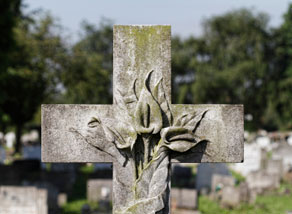June 11, 2014
Is the Church Dying? Or Not? (and the answer is...)
 The church blogosphere is heating up. The topic is death… the death of the Church…or to be more accurate this issue is a question: “Is the Church dying? Or not?”
The church blogosphere is heating up. The topic is death… the death of the Church…or to be more accurate this issue is a question: “Is the Church dying? Or not?”
Of course, everyone has an opinion. And I do mean everyone (including me, but I’m getting ahead of myself), and as a colleague of mine once said, “not a thought goes unpublished…” I must have read a have a dozen of these blog posts (at least) in the last several weeks alone…even tossed in a couple of my own. Opinions run the gamut. Some of my friends say, “Yes.” Some of my friends say, “No.” Some of my friends say, “Maybe so.”
The latest one I read, moments ago, was one by the Rev. Jason Cox of St. Columba’s, D.C., “The Church Isn’t Dying, Christendom Is.” And he makes some good points, among them that (a) we are way too anxious about this “dying church” business and (b) good riddance to Christendom, which never was the kingdom of God anyway but the institutional Church getting into bed with the Powers That Be.
I come down a little bit differently on this. (I know…you wouldn’t have it any other way.)
As usual, in large part I agree with my friends…on both sides. I say “The Church is ALWAYS Dying” and “The Church will NEVER die.”
Here are a few facts:
- Fact: Churches die. About 3,500 churches close each year in the U.S. alone. If it wasn’t for the 4,000 that open each year, we’d be in deep trouble.
- Fact: Denominations die. Actually, they split and the two parts die to each other. Worldwide, such schisms are creating new denominations faster than the rate at which we baptize new Christians
- Fact: Ways of doing church die. Christendom is dead. We just haven't gotten around to burying it just yet.
- Fact: Change is death. Yes, the Church is changing, but change often feels like death…because it is death: the death of a way of life. That’s why change is so hard: it reminds us of our mortality.
- Fact: Some churches would rather die than change. Many of the churches that have closed didn’t have to die. They might have lived if they had been able to adapt to their changing context, but they could not bring themselves to face that kind of change.
- Fact: Some churches die but pretend to be alive. Often, this happens because they are cursed with wealth. But churches do not live by endowments alone, but by hearing and acting on the word of God.
And here are a few truths:
- Truth: Churches may die but the Church cannot die. It is the love of Christ and the power of the Holy Spirit that give life to the Body of Christ.
- Truth: Death is nothing to be afraid of. If the Church believes its own teaching that death is the gate to eternal life, what do we as congregations and leaders of congregations have to fear? We are in the death and resurrection business for God’s sake (literally). Death ought to hold no power over our capacity to live.
- Truth: Death is not failure (and failure is not death). Unfortunately, both tend to be taboos in the institutional church: uncomfortable topics about which we do not speak, perhaps because we view them with guilt or shame. But closing a church can be a healthy and even a courageous thing to do, if done well. No dishonour in serving a life worth celebrating, then dying. Meanwhile, failure can be a source of great learning and even a road to great success, but only if we talk about it. And if we avoid failure as a way of life, we also avoid taking the risks that might lead to greater life. To put a different spin on Appoll 13, "Failure is not an option...It's a prerequisite."
So, is the Church dying? Or not?
The answer, of course, is “Yes.”
But the real question is, “How can we help our churches continually die in such a way as to be continually reborn?”





